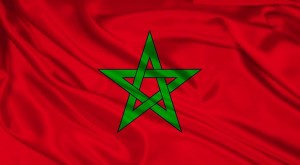Eurasia Review
By Said Temsamani
Mohamed El Kettani, the CEO of Attijariwafa Bank, said: “South-South cooperation is vital. So we must create larger, cross-frontier trading spaces. We have to make the most of the mutualisation and the complementarity of our resources and our economies. But we can’t do without the North, because today in Morocco we are meeting international investors, from Europe, the US, and Asia,
who are making Morocco a platform where part of the value is created in Morocco, another part in the North, and a third part in the countries south of Morocco.”
In fact, Morocco enjoys an international outlook, and “advanced status’ in the European Union’s European Neighbourhood Policy and close bilateral relations with the United States. Following the ‘Arab Spring’ – the popular uprisings of 2011 – there has been a true willingness for reform, to open up the market and attract inbound investment. Moroccan political and business leaders are aligned in their ambitions to be a financial hub for north and west Africa.
The African economy is gearing up a notch, and now as the continent has to work together to make the most of it, Morocco is positioning itself as a motor of African integration
U.S. policy toward Africa has been on autopilot for much of the past four years, following a laundry list of good intentions that established priorities for Africa’s well-being and U.S. security interests.
However, a truly sustainable and forward-looking U.S. policy toward Africa should refocus attention on Africa’s opportunity as an economic powerhouse of the future, a strategy that combines both domestic self-interest and an opportunity to help Africa move forward.
An emerging landscape of stable economies and growing democratic freedoms in much of Africa is allowing the continent, for the first time, to take advantage of its extensive natural resource endowments, its improving human capital, and its increasing attractiveness to global investors. U.S. policymakers have shown recent signs of understanding Africa’s position and are seeking to strengthen economic relations with African countries. They would be wise to formulate a comprehensive economic policy, not just with interagency coordination, but also in full partnership with the legislative branch, with the private sectors in America and Africa, and with African governments.
Morocco and because of geographical proximity and historical ties, Morocco will naturally look north to the European Union for trade and investment. Cultural differences are smaller than with the United States. A strong euro against the dollar makes the EU market more profitable for Morocco.
Moroccan exporters have established links with the EU market and adapted their production to the needs of that market. Moroccan companies some- times pass over opportunities to export to the United States because it is easier to deal with the European Union. But they will not successfully penetrate the US market unless strategies are implemented to put firms in contact with appropriate partners, familiarize them with the rules and standards, and establish a market presence in the United States.
With the right strategies, Morocco and the United States could reap greater benefits from the FTA. Morocco would improve its access to the US market. The United States could use Morocco as a platform for the entire Africa.
Morocco-US FTA represents a step in the right direction for the economic integration of the whole African continent. Pursuing this theme, the gains from the Morocco-US FTA could be significantly boosted if accompanied by a comprehensive process of regional integration in the Maghreb and Africa. Through the FTA, the United States could promote such integration by allowing for the cumulation of origin for products from neighboring Maghreb and African countries using a QIZ system, specifically by conditioning QIZ- type benefits on zero rate Moroccan tariffs on inputs from other Maghreb and African countries.
The experience of the EU Pan-Euro-Med cumulation systems is estimated to have increased trade flows among participating countries by 43 percent. In addition, the United States should encourage the regional harmonization of investment regimes, business regulations, customs procedures, and standards in key industries. Morocco, therefore could become an interesting trade and economic platform to American potential investors and at the same time African countries could benefit from this important trade agreement to access the American market.
“The emergence of the economic power of Morocco, initiated under the leadership of HM King Mohammed VI since his accession to the throne, is a key element of the royal strategy to consolidate relations of cooperation and solidarity with African countries” said Peter Pham, Africa Center director.
“Thanks to the vision of HM King Mohammed VI, Morocco leverage its emergence as an economic power to support the African strategy of the Kingdom”, explains the US expert.
About The Author

Said Temsamani is a member of the National Press Club, Washington DC. and a political analyst who follows events in Morocco and across North Africa.







